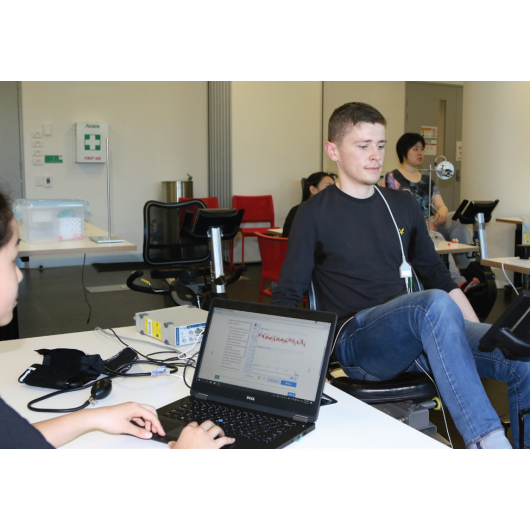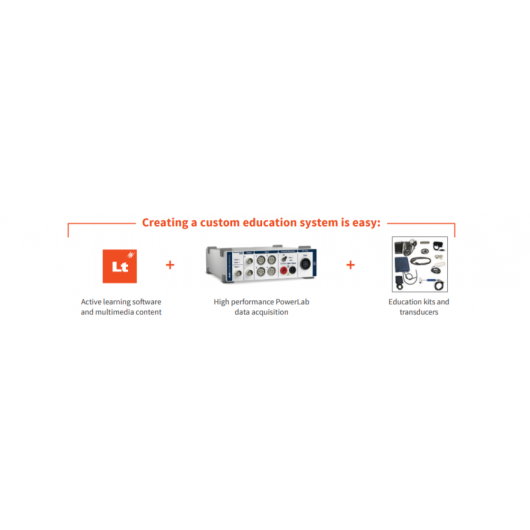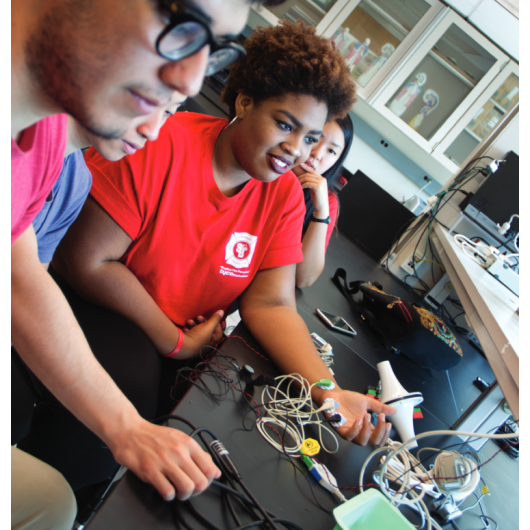


Lt LabStation
Lt LabStation is a laboratory-based learning platform that allows you to run labs without headaches.
Developed using the same technology as Lt, ADinstrument's online learning solution, Lt LabStation gives you and your students a modern lab experience in a package designed to be beautiful, effortlessly capable, and adaptable to your teaching style.
Lt LabStation gives you access to media-rich life science education content with real time data recording and analysis when paired with a PowerLab.
Lt LabStation gives you the flexibility to incorporate library of professionally developed content and experiments to suit your laboratory course. Or create, edit and access your own lessons online from anywhere with a web browser, then export your lessons so your students can work offline in the lab.

Lessons collections in LT LabStation
Animal physiology
Using Lt LabStation, zoology and physiology students can investigate basic and applied concepts in neuro and muscle physiology. Courses are designed with common undergraduate insect, annelid, amphibian and mammalian preparations.
Biology
Basic concepts in biochemistry including acid base titration, biological membrane fluidity, cellular respiration, spectrophotometry, photosynthesis and temperature effects on enzyme performance.
Exercise physiology
Use Lt LabStation to present introductory through to advanced concepts for undergraduate exercise and sports physiology students. Topics include metabolism, cardio-respiratory effects of exercise and energy expenditure during exercise.
Human physiology
Lt LabStation guides physiology students through courses designed to reinforce introductory and advanced concepts in cardiovascular physiology, respiratory physiology, neurophysiology, muscle physiology, digestion, and kidney and water balance.
Neuroscience
Advanced and introductory experiments designed to teach students about central and peripheral nerve function, brain activity using non-invasive approaches (EEG and visually evoked potentials), and intracellular and extracellular action potentials.
Pharmacology
Dose-response relationships and concepts in ligand-receptor binding, demonstrated through hands-on courses using isolated ileum, vas deferens and vascular smooth muscle tissue.
Psychophysiology
Detailed protocols to explore concepts in psychophysiology including biofeedback, classical conditioning, electrodermal response, perception, reaction time, and psychological bias.
- PTK39 Animal Physiology Kit
- PTK18 Biochemistry Kit
- MLA415 Biopotential Accessories Kit I
- MLA416 Biopotential Accessory Kit II
- PTK32 Education Psychophysiology Kit
- PTK12 Electrodermal Activity Kit
- PTK15 EOG Kit
- MLA242 Exercise Breathing Consumables
- PTK20 Exercise Breathing Kit
- PTK14 Exercise Physiology Kit
- PTK30 Human Physiology Kit
- PTK10 Human Respiratory Kit
- PTK28-D Isolated Heart Kit (Dual Heating)
- PTK11 Nerve and Muscle Kit
- PTK19 Nerve and Muscle Kit II
- PTK29 Nerve and Muscle Kit III
- PTK34 Neuroscience Kit
- PTK13 Pharmacology Kit
- PTK23-D Pharmacology Kit II (Dual Heating)
- PTK17 Reflex Kit
- PTK31 Skin Temperature Kit
- PTK25 Wireless Heart Rate Kit



